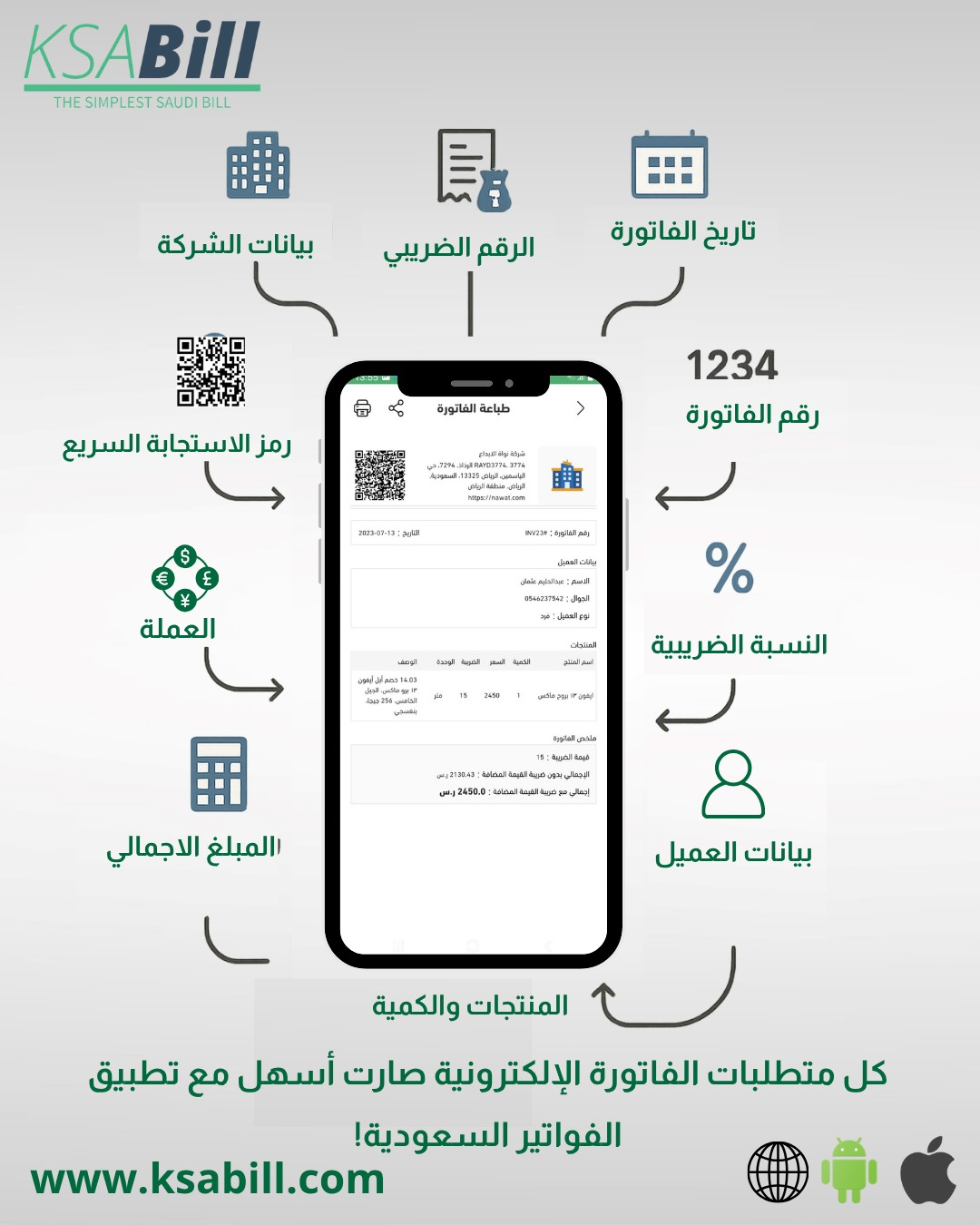
Everything you need to know about issuing an electronic invoice in Saudi Arabia
In light of the digital transformation taking place in the Kingdom, the electronic invoice has become an essential part of the accounting processes for any business, as it has been approved by the Zakat, Tax, and Customs Authority as a mandatory procedure.
But don't worry. With the Saudi Invoices app, you can easily issue your invoice from your mobile phone or via the web version, without complications or the need for an accounting background.
✅ Electronic invoice requirements include:
Invoice number and date of issue
Name and information of the buyer and seller
Type of products or services
Value Added Tax
QR code
Tax number
💡 The app provides all these requirements automatically and in an organized manner.
Stop wasting time sifting through paper files and start your smart invoicing experience with us today!
🚀 Download the app now and try the free version.